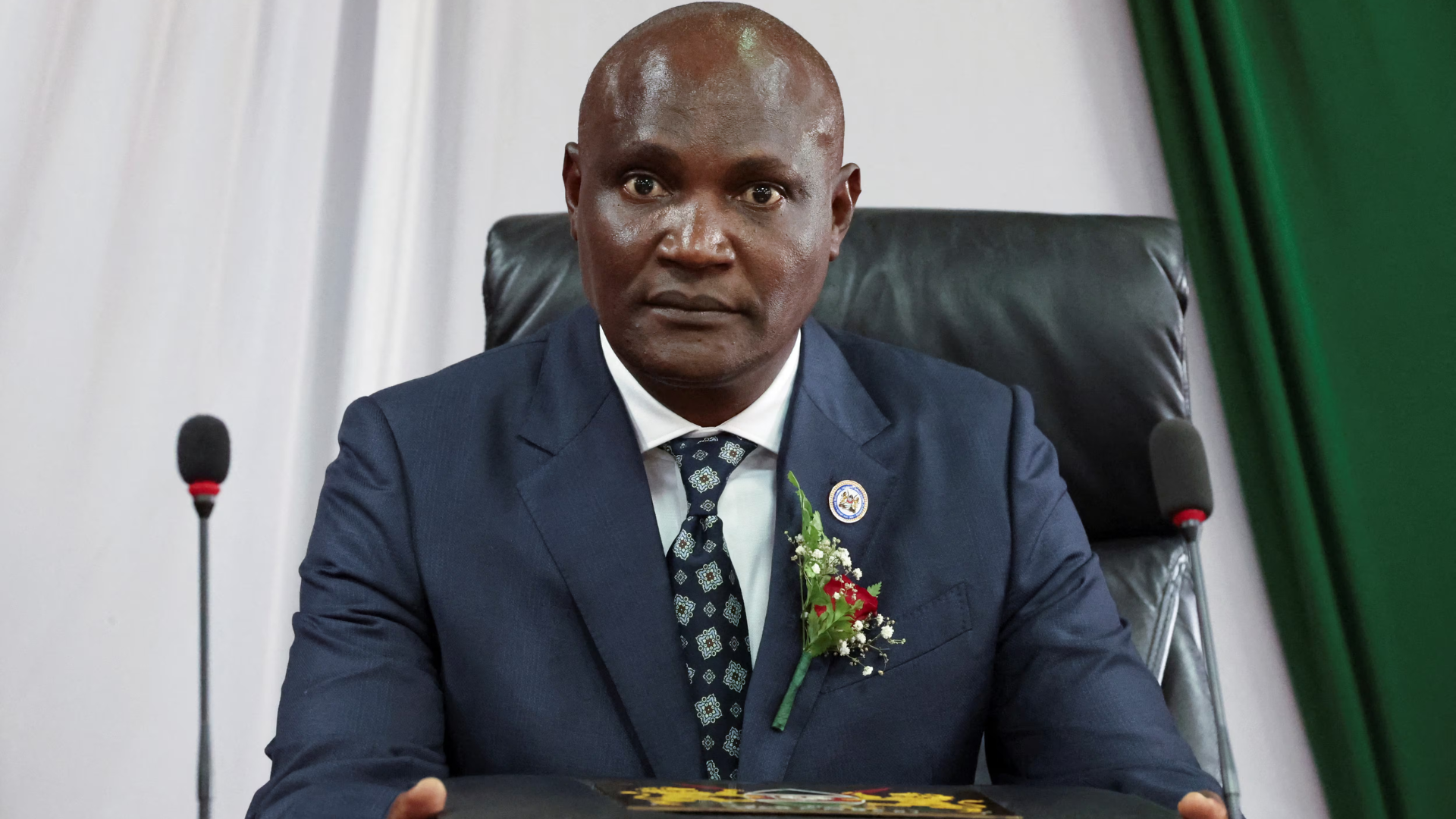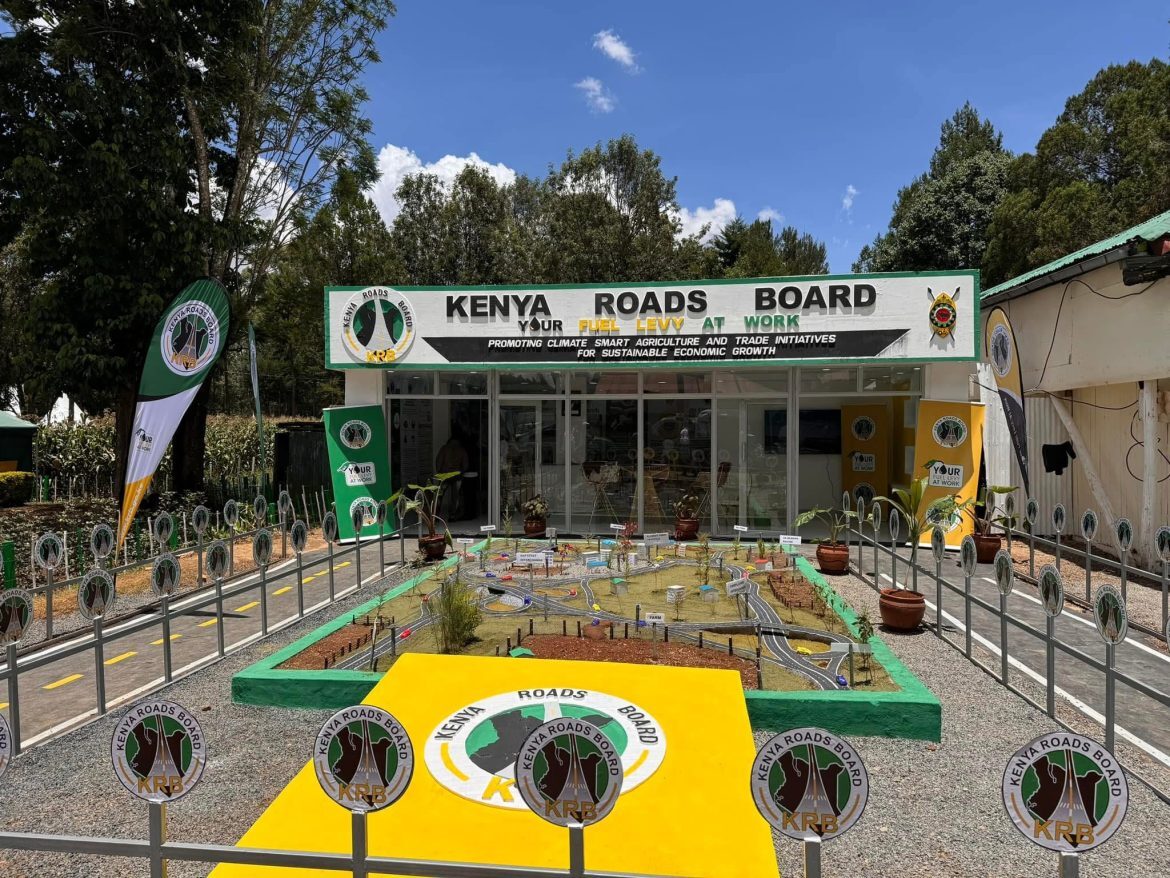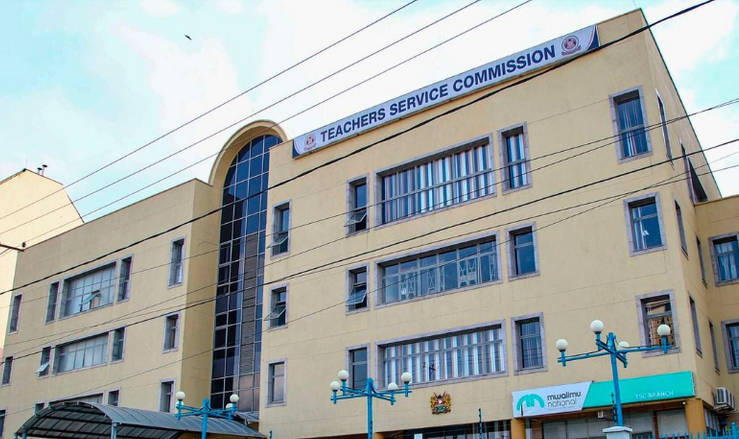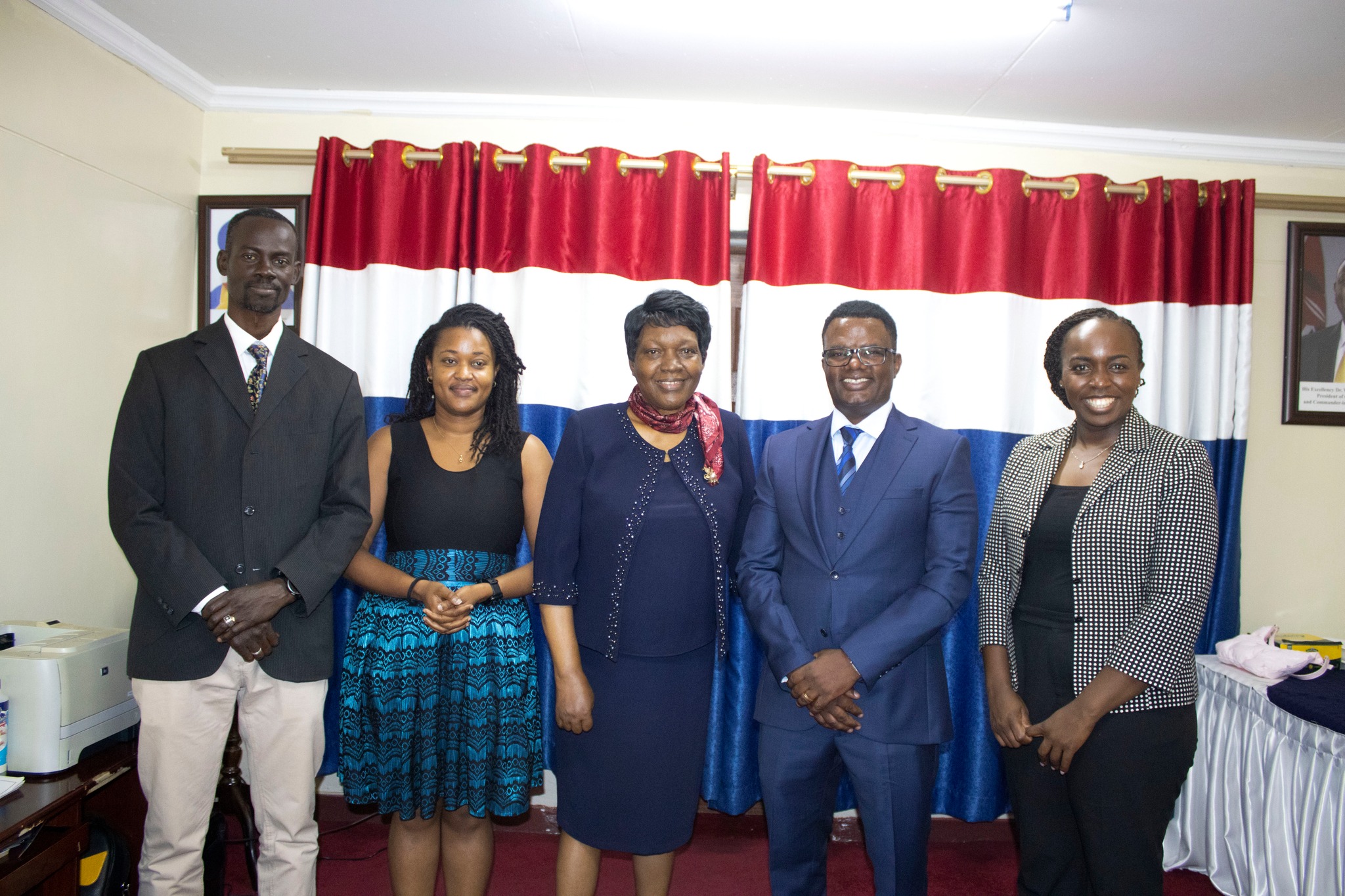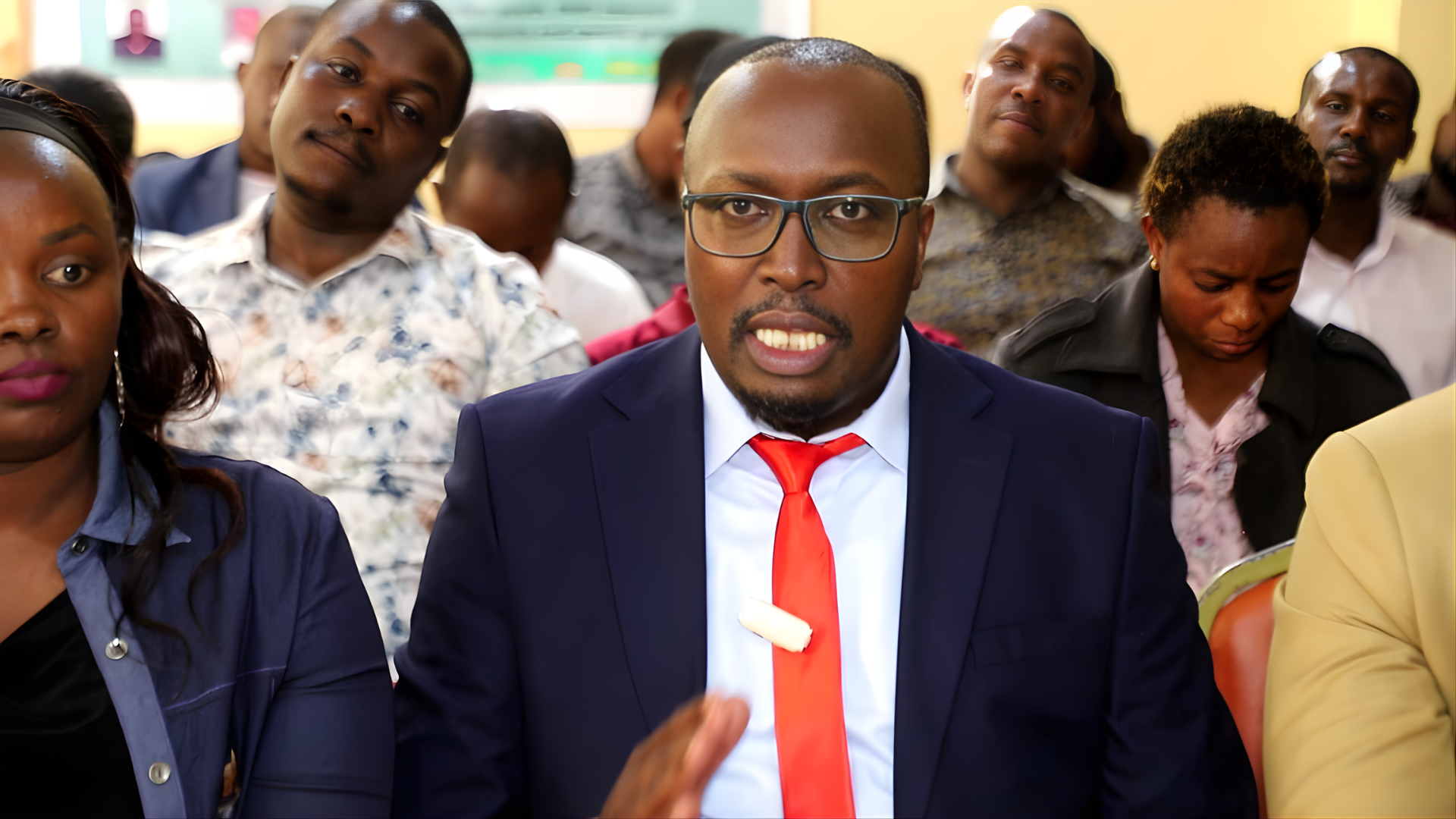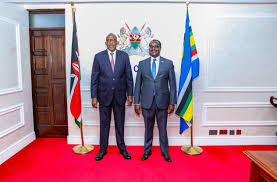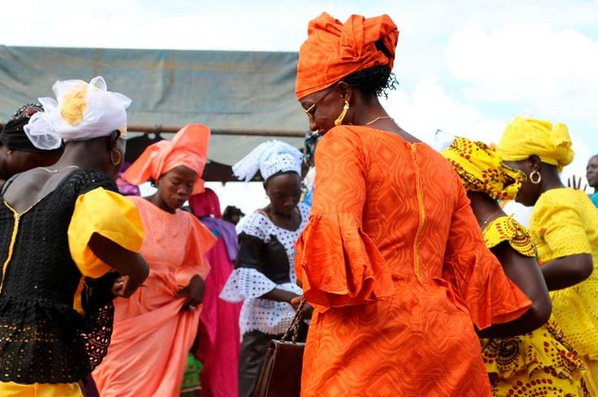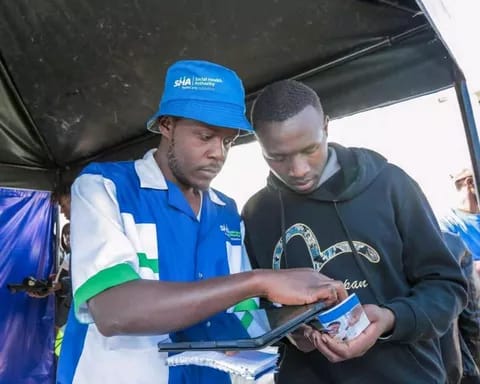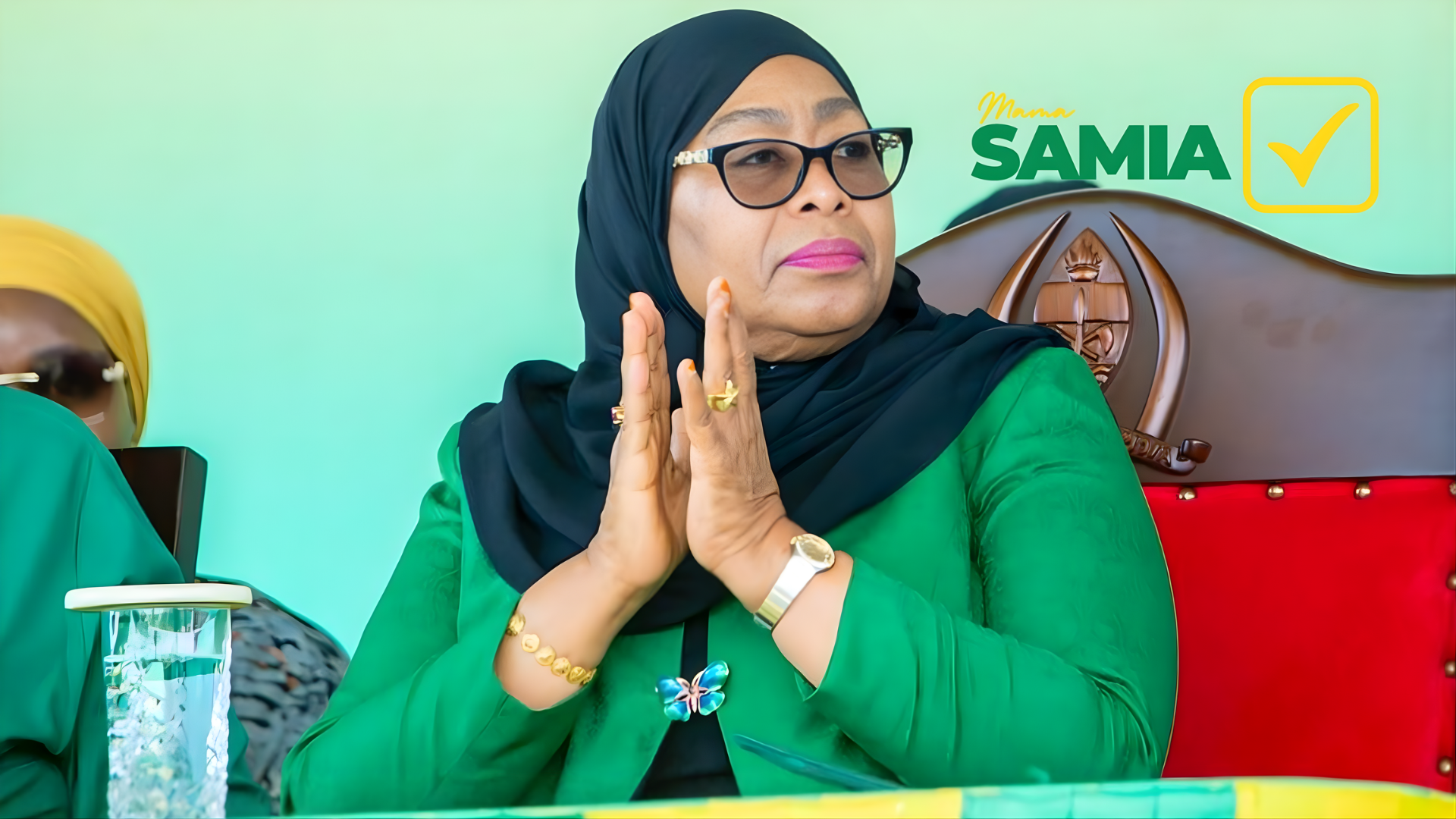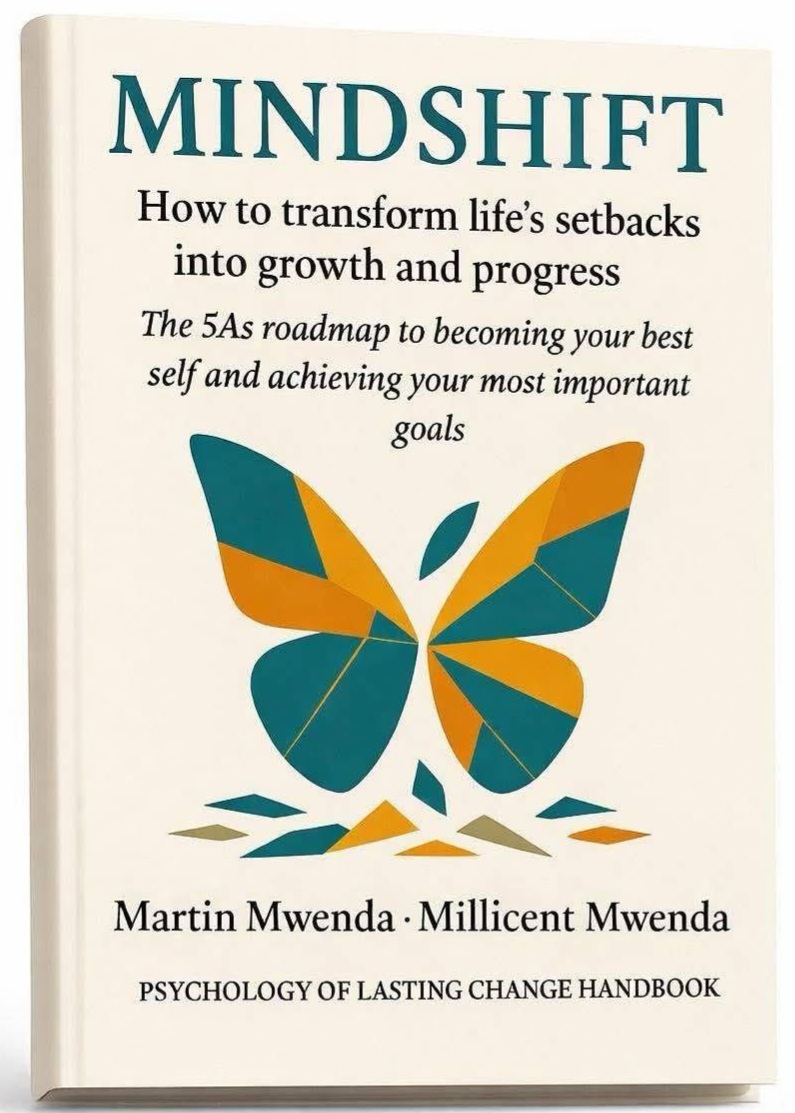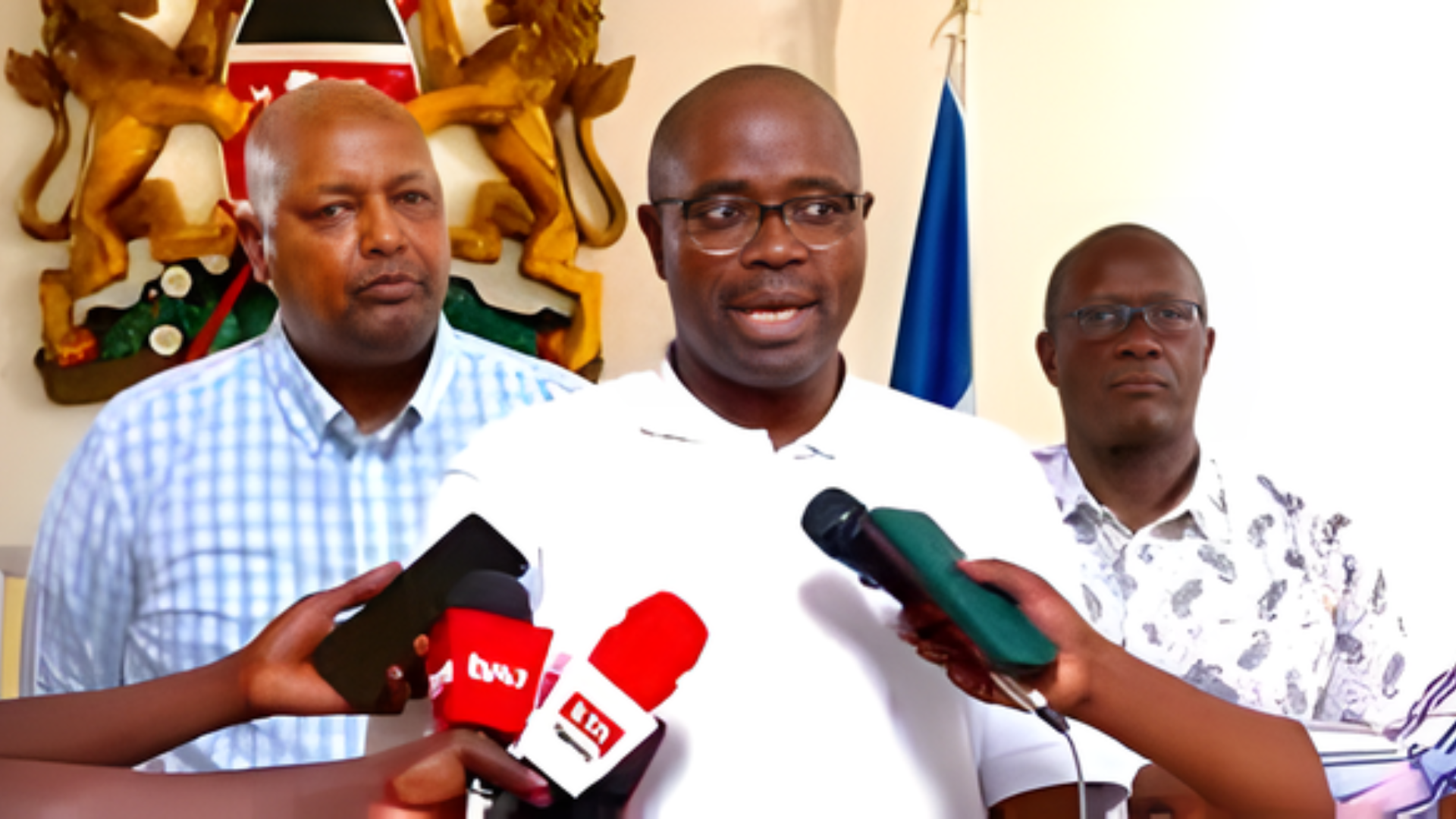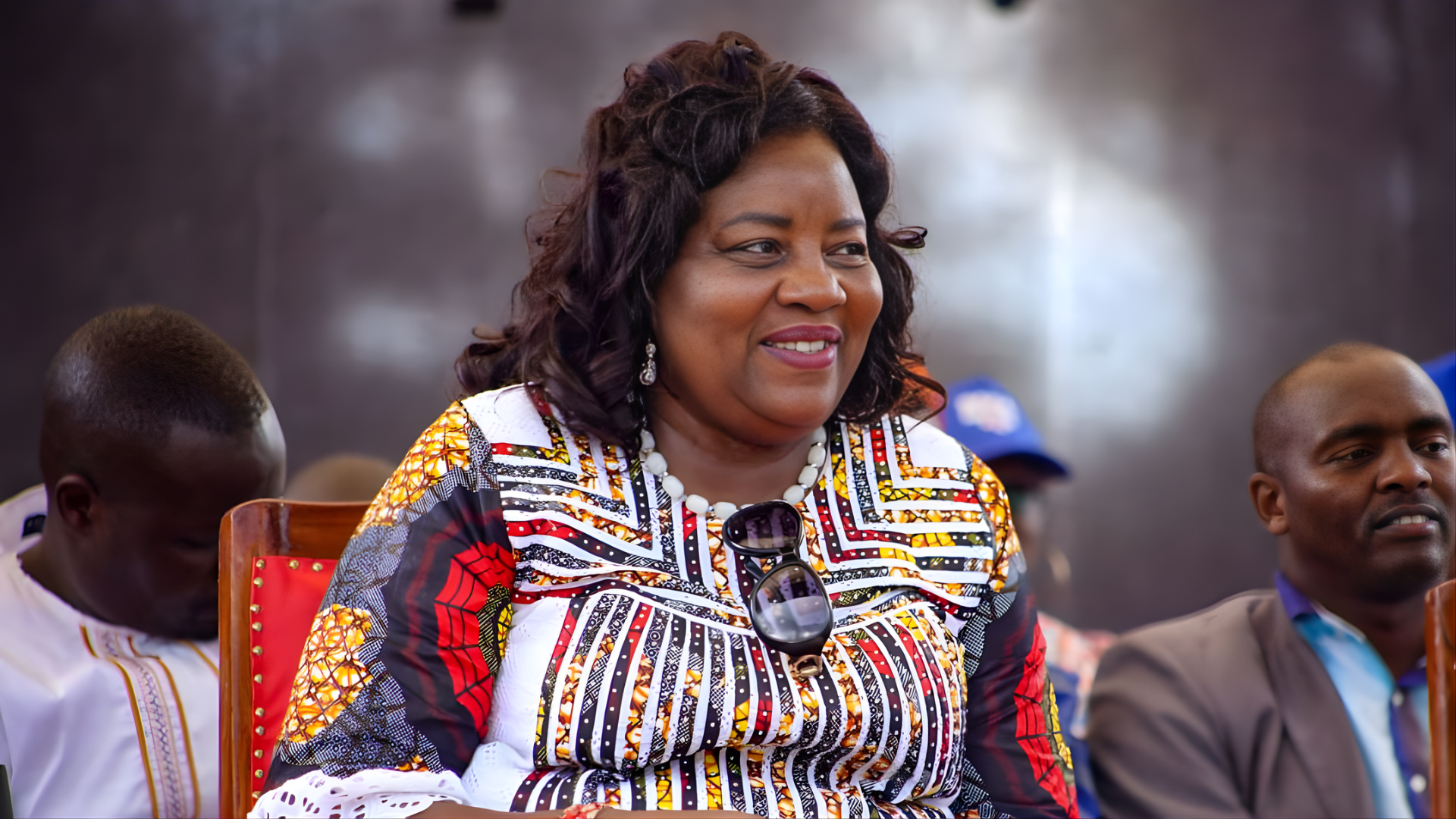The humid air of Dar es Salaam thickened with the scent of grilled mishkaki and diesel fumes as dusk settled over the coastal capital on October 31, 2025, the day after a general election that had gripped the East African nation in a vise of anticipation and unease. At the headquarters of the Independent National Electoral Commission, a modest compound ringed by razor wire and baobab trees, Chairperson Amina Mohamed stood before a phalanx of microphones, her expression a mask of procedural gravitas. Flanked by commissioners in starched khakis, she adjusted her spectacles and delivered the verdict that had been telegraphed in whispers since polls closed the previous evening. "In accordance with the tally of votes from all 272 constituencies, President Samia Suluhu Hassan of Chama Cha Mapinduzi has been declared the duly elected President of the United Republic of Tanzania for the 2025-2030 term," Mohamed intoned, her voice steady against the crackle of live broadcasts. "She has secured 31,913,866 votes, representing 98 percent of the total valid ballots cast. Her nearest contender, Paul Chaumu of the National Convention for Construction and Reform-Maguezi, received 213,414 votes, or 0.65 percent."
The announcement, beamed across state television and crackling radio waves to villages from the slopes of Kilimanjaro to the shores of Lake Tanganyika, ignited a bifurcated response that mirrored Tanzania's deepening political schisms. In CCM strongholds like Dodoma, throngs in yellow party scarves surged into streets lined with campaign billboards, their chants of "Samia! Samia!" blending with the rhythmic beats of taarab orchestras hastily assembled for victory parades. Fireworks arced over the Uhuru Stadium, where Hassan herself would later address the faithful, her silhouette framed against floodlights that cast long shadows on the pitch. Yet, mere kilometers away in the labyrinthine alleys of Kariakoo Market, pockets of defiance flickered—small clusters of youth hurling stones at riot shields, their cries of "Haki yetu!" drowned by the wail of sirens as police in anti-riot gear cordoned off thoroughfares. The election, held on October 29 amid sporadic internet blackouts and reports of ballot stuffing, had unfolded under a pall of repression that critics decried as a masterclass in managed democracy, ensuring the ruling party's grip remained unyielding after six decades at the helm.
Samia Suluhu Hassan, the 65-year-old trailblazer who ascended to the presidency in March 2021 following John Pombe Magufuli's sudden death from COVID-19 complications, had framed her campaign as a bridge from turbulent isolationism to pragmatic engagement. Born in Zanzibar to a schoolteacher father and homemaker mother, she rose through the ranks as a community organizer with the United Nations, later serving as a minister and vice president under Magufuli. Her tenure began with tentative reforms—easing media curbs, releasing political prisoners, and reopening the economy to foreign investors shuttered by her predecessor's protectionism. GDP growth rebounded to 5.4 percent in 2024, buoyed by gas exploration deals in the Rovuma Basin and a tourism surge that saw 1.8 million visitors flock to Serengeti safaris and Zanzibar's spice tours. "I inherited a nation on pause; together, we've hit play," Hassan proclaimed at a rally in Mwanza, her hijab fluttering in the lakeside breeze as fishermen nodded from their dagaa boats. "We've built 3,000 kilometers of roads connecting farmers to markets, vaccinated 90 percent of our children against measles, and launched the National Digital ID to streamline services for every citizen from Arusha to Kigoma."
Yet, for all her overtures—pardoning 5,000 inmates in 2022 and hosting East African Community summits—Hassan's administration had veered toward authoritarian echoes in the election's run-up. The disqualification of Chadema's Tundu Lissu on treason charges in April, followed by ACT-Wazalendo's Luhaga Mpina's barring over alleged nomination irregularities, left the ballot a hollow exercise. Lissu, the firebrand lawyer who survived a 2017 assassination attempt and returned from exile in 2023, languished in remand, his trial a spectacle of procedural delays that human rights monitors likened to a farce. "This is not an election; it's a coronation scripted in smoke-filled rooms," Lissu had thundered from a makeshift podium in Dodoma before his arrest, his words captured on smuggled videos that circulated via VPNs during the government's intermittent net shutdowns. Mpina, a former diplomat with ACT's youth wing, decried the attorney general's objection as "a dagger to multipartyism," his disqualification upheld by a CCM-leaning appeals court in September.
Into this void stepped Paul Chaumu, a 52-year-old engineer from Iringa and the token face of opposition in a field of 17 candidates from fringe parties. A one-term MP with the minor NCCR-Maguezi, Chaumu's platform hinged on anti-corruption audits and agricultural subsidies, but his campaign—confined to dusty town halls and FM radio spots—lacked the machinery to mount a credible assault. "I stand not as a spoiler, but as a sentinel for the silenced," Chaumu stated in his concession speech, delivered from a modest hotel in Morogoro as results poured in, his tie askew and voice hoarse from days of hoarse appeals. With just 0.65 percent, his haul underscored the opposition's emasculation: scattered votes from pockets of urban disillusionment in Dar es Salaam and Arusha, where WhatsApp groups buzzed with boycott calls that fizzled under police surveillance.
The INEC's tally, verified through a contentious streaming portal that glitchily updated amid the blackout, painted a picture of unassailable dominance. Early returns from rural strongholds like Mbeya showed Hassan at 95 percent, her margins swelling in coastal Mtwara to near-unanimity as clove farmers credited her fertilizer voucher program. Voter turnout, officially pegged at 72 percent of 34.7 million registered—up from 50.7 percent in 2020—drew skepticism from observers who noted inflated figures in CCM bastions and suppressed participation in opposition-leaning wards. "These numbers defy statistical gravity," quipped Freeman Mbowe, Chadema's acting chair, from a safe house in neighboring Kenya, where he had fled pre-poll threats. "Ninety-eight percent? That's not a mandate; that's a mirage engineered by fear and favoritism." International monitors from the Southern African Development Community and East African Community, deployed late after initial hesitations, issued preliminary nods to "peaceful conduct" but flagged "institutional biases" in a joint statement, urging judicial reviews for the 47 constituencies where discrepancies exceeded 10 percent.
Hassan's victory lap commenced at State House in Dar es Salaam, where she emerged onto a balcony overlooking the Indian Ocean, her navy blue kitenge dress embroidered with motifs of unity baobabs. Flanked by running mate Emmanuel Nchimbi, the former intelligence chief turned interior minister, she clasped hands with jubilant aides as CCM anthems swelled from loudspeakers. "My fellow Tanzanians, this triumph is woven from your threads of resilience and hope," she declared, her Zanzibari lilt carrying over the cheers of 10,000 gathered below, many bused in from upcountry. "We've turned the page on division, investing in schools that light young minds and factories that forge jobs for our youth. In this second term, we pledge to electrify every village by 2028, expand our ports to welcome trade from Asia to Europe, and ensure no child goes hungry while our granaries overflow." Nchimbi, a stoic figure with a military bearing, nodded solemnly, his selection a nod to security hawks within CCM who viewed Hassan's reforms as soft edges needing hardening.
The celebrations masked undercurrents of coercion that had shadowed the vote. On election day, riot police in Dar es Salaam dispersed clusters of Chadema youth attempting to blockade polling stations, tear gas canisters hissing like vipers amid acrid smoke. In Arusha, a northern hub of Maasai activism, reports emerged of ballot boxes swapped under cover of night, while in Zanzibar—where semi-autonomous polls ran parallel—clashes between CCM and opposition militias left three injured. The internet throttle, imposed under a vague "national security" edict, severed social media for 18 hours, forcing voters to navigate queues by word-of-mouth amid whispers of pre-marked papers. "I waited three hours, only to find my name crossed off the roll," recounted 28-year-old teacher Zainab Juma from a Morogoro suburb, her inked thumb a futile trophy. "They say it's free; I say it's fixed." UNHCR logs documented over 200 enforced disappearances since 2019, including the May abductions of Kenyan activist Boniface Mwangi and Ugandan journalist Agather Atuhaire during Lissu's trial—cases Hassan attributed to "rogue elements" but failed to resolve.
Economically, the result steadied nerves in boardrooms from Julius Nyerere International Airport to the Dar es Salaam Stock Exchange, where shares in mining giants like Geita Gold ticked upward 2 percent on news of continuity. Hassan's first term lured $3.5 billion in foreign direct investment, from UAE-backed solar farms in Dodoma to Chinese lithium concessions in Njombe, positioning Tanzania as East Africa's growth engine at 6.2 percent projected for 2026. "Stability breeds capital; this win cements our trajectory," opined economist Dr. Elias Kileo at a post-announcement panel, his charts projecting 1.2 million new jobs in agro-processing alone. Yet, critics like the International Crisis Group warned of long-term perils: stifled dissent erodes innovation, with brain drain accelerating as 15,000 skilled graduates emigrate annually to South Africa or the UK. "A 98 percent president rules a 100 percent risk—investors love predictability, but repression breeds backlash," Kileo added, his caveat lost in the revelry.
Opposition ripples extended beyond Chaumu's meager tally. Chadema, boycotting urban races, captured whispers of parliamentary seats in coastal Tanga, where fisherfolk railed against foreign trawlers encroaching on artisanal grounds. ACT-Wazalendo, fragmented post-Mpina, funneled energies into local councils, securing mayoral bids in Mbeya on promises of water pipelines to drought-hit wards. Lissu, from his cell in Ukonga Prison, smuggled a message via lawyers: "Samia's crown is thorns for Tanzania's democracy. We concede nothing but fight everything." Mbowe, in exile, convened virtual strategy sessions with diaspora networks, plotting legal salvos at the African Court on Human and Peoples' Rights in Arusha. "Zero point six five percent? That's the spark; watch it ignite," he vowed, his feed glitchy from VPN strains.
Internationally, the verdict drew a mosaic of reactions. Neighboring Kenya's President William Ruto extended congratulations via a terse tweet, mindful of border trade volumes exceeding $500 million annually, while Uganda's Yoweri Museveni hailed Hassan's "wise leadership" in a statement laced with fraternal overtures. The European Union, withholding full observers over visa snubs, issued a measured note urging "post-poll inclusivity," its envoy in Dar es Salaam hosting quiet dinners with civil society. In Washington, State Department spokespeople echoed calls for transparency, tying future Millennium Challenge aid—$400 million for transport—to governance benchmarks. "Tanzania's people deserve polls that reflect their pluralism, not just their patience," read a White House brief, a subtle prod amid U.S. interests in Tanzanian phosphates for EV batteries.
As November dawned, Hassan charted her encore: a cabinet reshuffle tilting toward technocrats, with Nchimbi's interior portfolio fortified against unrest. Priority bills loomed—a Digital Economy Act streamlining e-governance, an Anti-Corruption Amendment empowering whistleblowers—though skeptics eyed veto powers as fig leaves. In rural Mbinga, tea pluckers like 45-year-old Fatuma Hassan (no relation) tuned radios to victory hymns, her cooperative's yields up 20 percent on subsidized inputs. "She delivered the scales we needed; votes are gratitude," Fatuma said, bundling leaves under a mango tree. In urban Kinondoni, barista Salim Ally scrolled opposition feeds on a borrowed phone, his tip jar lighter from tourist dips. "Ninety-eight percent feels like 100 percent lie; when does the real count begin?"
Zanzibar's parallel polls, yielding CCM's Hussein Mwinyi a 74.8 percent re-run, amplified union tensions, with separatist murmurs in Stone Town's spice souks. Yet, Hassan's address struck notes of conciliation: "To those who voted otherwise, your voices echo in our vow to serve all. Let us heal divides with deeds, not decrees." Chaumu, retreating to his Iringa farm, mulled appeals but conceded the arithmetic. "The numbers stand, but the narrative? That's ours to rewrite," he reflected, hoe in hand amid rustling maize.
This election, etched in ink and indignation, encapsulates Tanzania's paradox: a nation of 67 million pulsing with youth—60 percent under 25—yearning for Nyerere's ujamaa equity amid global gales. Hassan's 98 percent, a numeral both laurel and albatross, propels her toward milestones: universal secondary education by 2030, a $100 billion economy by decade's end. But beneath the metrics, fissures yawn—youth unemployment at 13 percent fueling hip-hop anthems of revolt, women's representation stagnant at 37 percent in parliament despite Hassan's gender milestone. As bonfires gutter in Dar's outskirts and choirs swell in Dodoma's cathedrals, Tanzania exhales into uncertainty. The winner is declared, but the real contest—for hearts, not hustings—endures, a quiet drumbeat beneath the victory fanfare, pulsing toward horizons yet uncharted.
Hassan's blueprint unfurls in specifics: the Julius Nyerere Hydropower Project, set for 2027 commissioning, to power 20 million homes; coastal mangrove restorations shielding 1,000 kilometers from cyclones; and a Youth Innovation Fund seeding 50,000 startups in fintech and agritech. "We've stabilized; now we surge," she told cabinet on November 1, maps of rail extensions to Burundi unrolled across the table. Nchimbi, ever the sentinel, briefed on de-escalation: amnesties for 200 minor arrestees, dialogue forums in 10 hotspots. Yet, Lissu's shadow looms—his trial resumption in December a litmus for reform sincerity.
Economists forecast headwinds: inflation at 4.2 percent nibbling gains, debt servicing claiming 30 percent of revenues. "Samia's edge is execution; falter, and the 0.65 percent swells," warned Kileo, his models graphing volatility. Opposition coalesces: Chadema-ACT pacts for 2027 locals, diaspora remittances—$2 billion yearly—channeled to shadow audits. Juma, back in her classroom sans chalk, mentors pupils on civic math: "Add the silenced votes; subtract the fear—what's the true total?"
In this tableau of triumph and tremor, Tanzania navigates its seventh CCM decade. Hassan's presidency, bookended by Magufuli's fervor and her own finesse, tests the republic's resilience. As dhows slice the dawn off Bagamoyo, carrying cloves to distant ports, the nation ponders: is 98 percent consensus or coercion? The ballots are boxed, but the ballots of belonging—cast in daily strivings—remain open, inviting a verdict written in time's patient ink.
